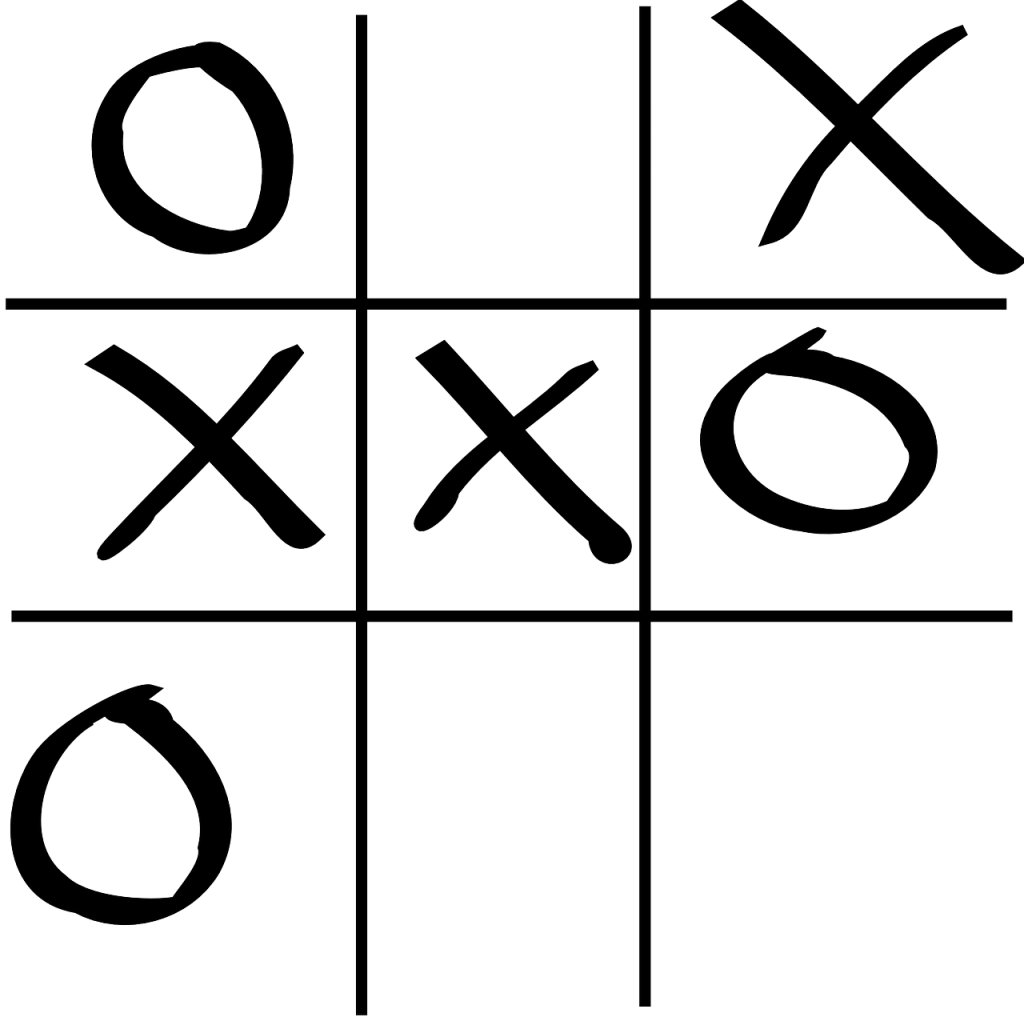Simple games
In the field of game theory, a game is solved when the optimized solution is known. You probably have experienced this with this game:

This simple game with the goal of getting your three shapes in a row before your opponent. As you get older you find that you can optimize it, this will lead to a tie. This game with fair rules has the solution of a tie.
Checkers and Chess – More complex games
Checkers is a more complex game. There are more pieces and more spaces, more choices, and more possible outcomes. Checkers has been solved. An optimal solution for checkers has been found.
Chess to my knowledge has not been solved… yet. At some point in the future chess will be solved. There will be one optimal solution for chess. If one player uses that optimal solution and the other is not then the player using it will win each time. If two players use the optimal solution it will either result in a ties, or turn into a game of chance.
Codes – Fluctuating complexity
Puzzles and codes (cryptography) are also games. However, unlike chess and checkers, the rules are not defined. A player may or may not know all the rules. A player may or may not know all the needed pieces of information to solve the game. A puzzle can be very easy for one person and impossible for another.
Future
I didn’t include any puzzles or codes in this post. I write this because today codes and puzzles are the new chess. Machines are getting better and better. Soon AI will be able to solve chess. However, puzzles will take a lot longer to solve with a computer.